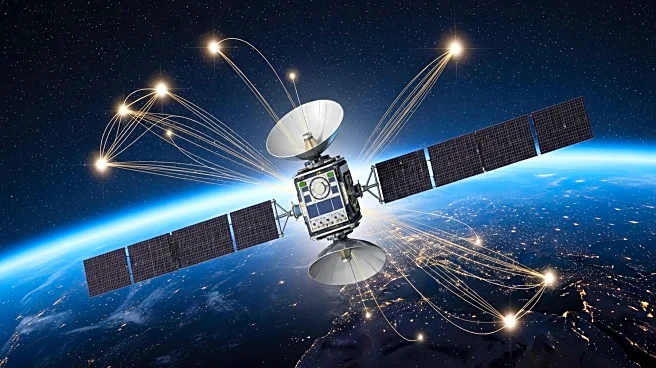What's Happening?
The U.S. Space Force is advancing its strategy to make future space programs more accessible to Foreign Military Sales (FMS), as revealed by Maj. Gen. Stephen Purdy at the Air, Space and Cyber Conference. The initiative aims to replace the Geosynchronous Space Situational Awareness Program (GSSAP) satellites with the RG-XX program, which will be unclassified and refuelable. This approach is designed to facilitate international collaboration, allowing partner nations to contribute financially before the U.S. program is fully funded. The Space Force is also exploring FMS versions of space-based connectivity networks and other space technologies, responding to growing international demand.
Why It's Important?
This development signifies a shift in U.S. space policy, emphasizing international cooperation and shared financial responsibility. By making space programs FMS-friendly, the U.S. can strengthen alliances and enhance global security through shared technological advancements. This approach could lead to increased investment in space technology from allied nations, fostering innovation and expanding the market for U.S. defense contractors. The initiative also reflects the changing dynamics of global defense strategies, where space capabilities are becoming crucial for national security.
What's Next?
The Space Force is preparing for a significant increase in FMS cases, with expectations of doubling the dollar value annually. The Space Systems Command is actively supporting 80 FMS cases and anticipates future agreements to be worth billions. As international interest grows, the Space Force will continue discussions with partners about providing FMS versions of various space technologies. This could lead to new collaborations and technological advancements, further integrating U.S. and allied space capabilities.
Beyond the Headlines
The move towards FMS-friendly space programs could have long-term implications for global defense strategies, potentially leading to a more interconnected and cooperative approach to space security. It may also prompt ethical and legal discussions about the sharing of sensitive technologies and the balance between national security and international collaboration.











